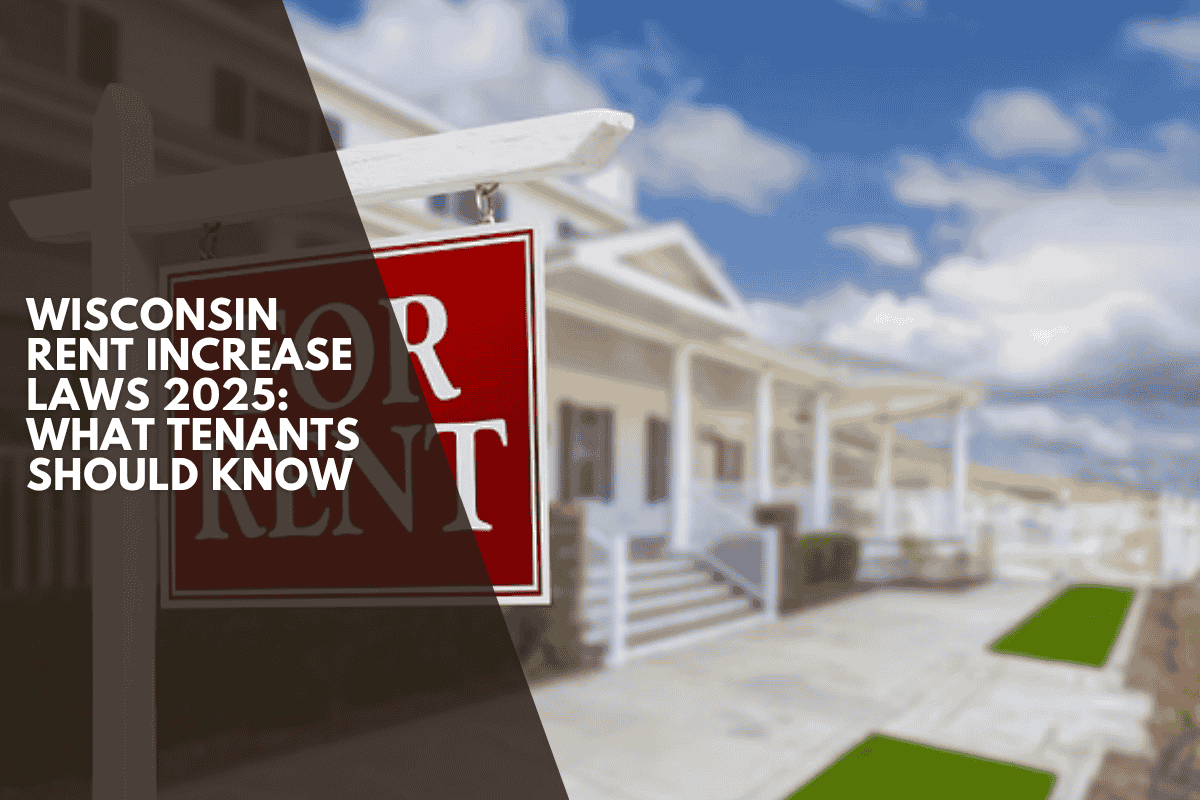In 2025, Wisconsin continues to have no statewide rent control, meaning there are no legal limits on how much or how often landlords can raise rent for most rental properties.
The state legislature has explicitly prohibited rent control, so landlords are generally free to set rent prices and increase them as they see fit. The only exceptions to this rule are for certain subsidized or income-restricted housing units, which may have their own rent increase restrictions due to federal or state programs.
Notice Requirements for Rent Increases
Although landlords have broad discretion to raise rent, they must follow specific notice requirements. Wisconsin law mandates that landlords give tenants at least 28 days’ written notice before a rent increase can take effect.
This requirement applies to both month-to-month tenancies and fixed-term leases that are ending and being renewed at a higher rate. The notice must clearly state the new rent amount and the date the increase will begin.
For tenants with a year-long lease, the landlord must provide this notice at least 28 days before the lease expires if they intend to raise the rent for the renewal period.
Restrictions on Rent Increases
While landlords can generally raise rent as they wish, there are important legal protections for tenants. Rent cannot be increased during the term of a fixed lease unless the lease agreement specifically allows for it.
Additionally, landlords are prohibited from raising rent in a way that discriminates against tenants based on protected characteristics such as race, color, disability, family status, or other factors covered by state and federal fair housing laws.
Retaliatory rent increases, such as those made in response to a tenant requesting repairs or joining a tenant organization, are also illegal. If a rent increase occurs within six months of a tenant exercising their legal rights, it may be presumed retaliatory, especially in cities like Madison.
Local Ordinances and Additional Protections
Most cities and counties in Wisconsin are prevented by state law from enacting their own rent control measures. However, some municipalities may have additional tenant protections or procedural requirements related to rent increases. Tenants in cities like Madison or Milwaukee should check local ordinances to see if any extra safeguards apply.
Tenant Rights and Responsibilities
Tenants in Wisconsin have the right to receive proper written notice of any rent increase and to live in safe, habitable housing. If you receive a notice of a rent increase, it is important to review your lease agreement and ensure the notice complies with state law. If you suspect that a rent increase is discriminatory or retaliatory, you may have grounds to challenge it through local housing authorities or legal channels.
Wisconsin’s rent increase laws in 2025 give landlords significant flexibility, but also provide tenants with important notice requirements and protections against unfair practices. Understanding these rules can help tenants plan for changes in their rental costs and ensure their rights are respected throughout the leasing process.
Sources
[1] https://www.hemlane.com/resources/wisconsin-rent-control-laws/
[2] https://www.tenantresourcecenter.org/raising_the_rent
[3] https://www.steadily.com/blog/how-much-can-a-landlord-raise-rent-in-wisconsin
[4] https://www.hemlane.com/resources/wisconsin-tenant-landlord-law/
[5] https://www.steadily.com/blog/rent-increase-laws-regulations-wisconsin











